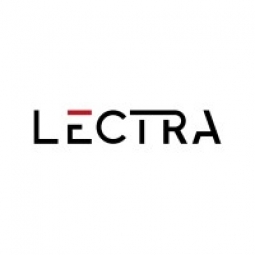Overview
this profile, please contact us at team@asiagrowthpartners.com
 |
Lectra |
| France | |
| 1973 | |
| Public | |
| $100m-1b | |
| 1,001 - 10,000 | |
| Open website |
IoT Snapshot
Technology Stack
Case Studies
|
BOS Automotive Enhances Cutting Line Performance with Lectra VectorAuto iX6
BOS Automotive, a supplier of interior components, was facing a challenge in keeping up with the changing requirements of an expanded product range and a thriving armrest business. The company's existing fabric-cutting equipment was not able to meet the increasing demands and the need for precision in the production process. The challenge was to find a solution that could not only increase the output but also improve the quality of the cut, thereby fulfilling the customer requirements. |
|
|
Vilmers: Implementing Industry 4.0 for Enhanced Customization and Speedy Deliveries
Vilmers, a furniture company, was facing a significant challenge in meeting the growing demand for customization and faster delivery times. The company was also keen on transitioning towards Industry 4.0, which is considered the future of the furniture industry. The challenge was not just about meeting the current demands but also about positioning the company for future growth and competitiveness. The company needed a solution that would not only help them cope with the current demand but also lay the foundation for becoming an Industry 4.0 company. The challenge was to find a solution that would seamlessly integrate with their existing processes and help them transition smoothly into the new industrial revolution. |
|
|
Achieves efficient accurate cost control with Lectra technology
Lise Charmel Lingerie, known for its high-quality French embroidery and innovative textiles, faced challenges in controlling costs and fabric consumption. The intricate details of embroidered and lace bands required precise placement to minimize waste. The company sought a way to estimate lace and fabric consumption more accurately and easily to maintain quality while keeping costs reasonable. |
Podcasts
|
EP 179 - Bridging the gap between consumers and factories - Leonard Marano, President of the Americas, Lectra
Monday, Jun 05, 2023
In this episode, we talked with Leonard Marano, President of the Americas at Lectra. Lectra provides Industry 4.0 solutions to bridge the gap between the consumer and the factory bringing precision and flexibility to the design to production process. In this talk, we discussed market trends driving Industry 4.0 adoption including mass customization, sustainability, nearshoring, and workforce shortages. We also explored how manufacturing in the fashion industry is evolving its supply chains to differentiate quality, cost, and speed to market. Key Questions: ● How does mass customization affect the current market trends? ● What factors affect people to invest more in technologies that promote sustainability? ● How do nearshoring and workforce shortages drive automation? Read More
|




